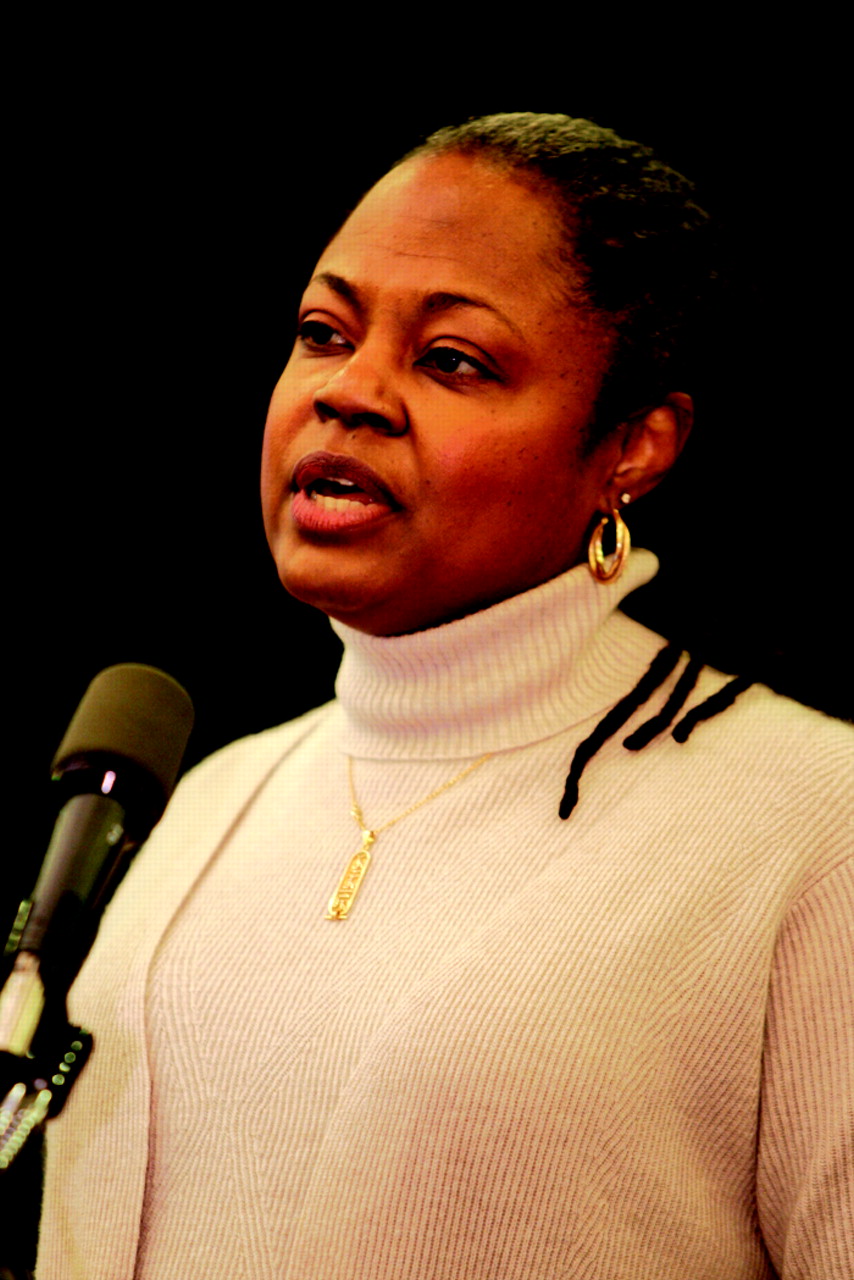Correctional Psychiatry Needs More Clinicians
The field of child and adolescent psychiatry is not the only practice area enduring a serious shortage of trained clinicians. A similar chasm between supply and demand is a constant concern in correctional psychiatry as well, pointed out Cassandra Newkirk, M.D., at an APA Assembly session devoted to workforce issues (Original article: see article at left).

Photo: David Hathcox
Newkirk, director of mental health programs at New York's huge Riker's Island prison, described the dimension of the need for psychiatrists in correctional systems by noting that of the 4 million Americans in prison or on parole in 2003, about 25 percent had a psychiatric disorder. She pointed out that inmates are the only population in the United States who have a constitutional right to mental health care. But clinicians have to be available to provide it, of course.
While the need for care by highly skilled clinicians is enormous in correctional settings, only about 4 percent of the 10,341 mental health professionals in those facilities in 1999 were psychiatrists, and another 19 percent were psychologists. In light of the serious risk of inmate suicides and substantial number of inmates taking psychoactive medications, Newkirk suggested that a great need is going unmet.
She identified several key roles for psychiatrists in correctional settings including conducting assessments, deciding on the level of treatment needed, addressing suicide or violent behavior risk through crisis intervention, monitoring medication, consulting to other medical staff about mental health issues such as an inmate's capacity to make medical decisions, and being part of a treatment team.
The benefits of this type of work are numerous, Newkirk said. Psychiatrists get to see challenging cases, for example, and treat a population that varies by gender, age, and severity of illness.
And salaries are good, she noted. A 1999 survey found that“ psychiatrists are usually the highest paid health care professional in correctional settings,” with annual salaries ranging from $59,000 to $234,000.
On the negative side, however, are the isolation that can come in settings that are often rural, an unappealing physical environment, lack of patient confidentiality, and conflicts between a culture trained to help and one designed to punish.



